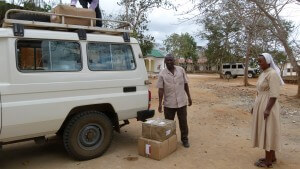 World Health Day is on the 7th of April each year. The day marks the anniversary of the World Health Organisation (WHO), which was founded in 1948. Each year a theme is selected for World Health Day that highlights a priority area of concern for WHO – this year the focus is on diabetes.
World Health Day is on the 7th of April each year. The day marks the anniversary of the World Health Organisation (WHO), which was founded in 1948. Each year a theme is selected for World Health Day that highlights a priority area of concern for WHO – this year the focus is on diabetes.
In 2012, diabetes was the direct cause of some 1.5 million deaths, with more than 80% of those occurring in low- and middle-income countries. WHO projects that diabetes will be the 7th leading cause of death by 2030.
In the African Region, the rate of diabetes is growing, representing a big challenge to governments, health services, communities and individuals. In Africa, where an estimated 12.1 million people, or 3.2% of the adult population, are now estimated to have the disease and, alarmingly, only 15% of people with the disease are diagnosed. In most cases, the diagnosis is made when the person presents to the clinic with a complication which is either acute or chronic.
Diabetes can lead to high rates of ill health, disability and premature deaths. It has severe health complications such as blindness, kidney failure, neuropathy, disability and premature death. It also has serious economic consequences which include loss of productivity and high health care costs.
It is important to prevent and treat diabetes globally. However, many diabetic patients in sub-Saharan Africa face significant challenges accessing diagnosis and treatment, which contributes to the high mortality and prevalence of complications.
Many of the health units supported by Inter Care treat patients who have diabetes.
What You Can Do
By donating to Inter Care, you can help us support our beneficiaries in Africa in the diagnosing and management of diabetes.
